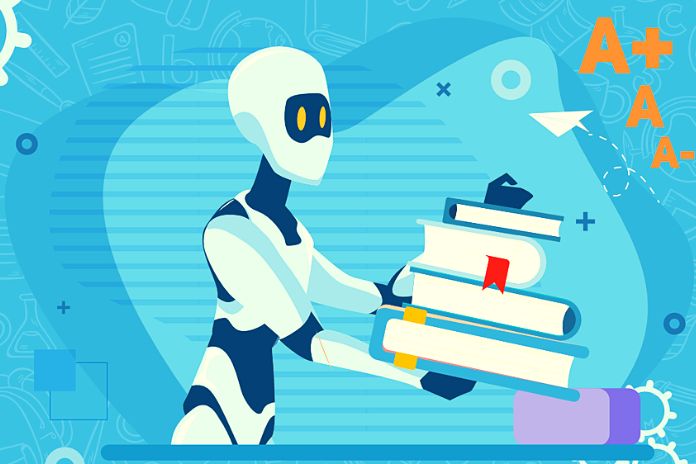Discover Five Applications Of AI In Companies!
AI in companies: Since the mid-twentieth century, technological development has impacted changes in society with particular speed. When we talk about the corporate world, these changes are even more frequent, for example, with the implementation of artificial intelligence in companies.
The data age has forever changed how organizations develop their strategies and operate in the marketplace. Today, companies receive information all the time at speed previously unimaginable.
In this context, implementing artificial intelligence in companies becomes fundamental to quickly take advantage of all the strategic information available and use it to support decision-making processes.
In this article, we will explain more clearly what artificial intelligence is and the five applications of this technology in organizations. Come with us!
Artificial Intelligence In Companies
Before presenting the applications of artificial intelligence in companies, let’s briefly introduce what it is and how the technology works.
What Is Artificial Intelligence?
More than a simple technological solution, AI is a grouping of practices and tools that encompass:
- big data,
- machine learning,
- algorithms,
- artificial neural networks, among others.
Thus, the primary purpose of artificial intelligence is to coordinate these subsets mentioned above so that software can simulate human reasoning to perform specific tasks.
In particular, the machine develops a capacity for reasoning and problem analysis to solve them standardized.
Big Data And Machine Learning
Data intelligence, for example, has extensive data as one of the main foundations. The term represents many apprehended data that denotes and anticipates behavior patterns. The software acts according to a logical line of behavior from this assimilation that simulates human reasoning.
Another relevant subset in this process is machine learning. It represents the machine’s ability to learn and assign expected responses to different combinations of the data stored by big data.
Thus, while big data represents the stored data, machine learning denotes the ability to give predictive responses to specific patterns of association of these records.
An example is the Siri and Alexa digital assistants from Apple and Amazon, respectively. AI develops them to interpret the user’s voice. From the perception of patterns, they interact with people, make to-do lists, live traffic information, and play music and podcasts, among other everyday functions.
Five Examples Of Artificial Intelligence In Companies
We have selected five examples of artificial intelligence in companies so that you can better understand how technology is applied and is impacting the corporate world. Let’s go to them:
Management
AI in management consists of automating data to generate insights that guide strategic decision-making. In this case, the platform can perceive patterns, offer intelligent solutions to specific problems, and improve operational performance.
Security Mechanisms
Artificial intelligence can be used as a security mechanism, and a classic example of this application is internet banking. Application servers and online banking platforms often have surveillance software that can respond to account hacks or suspicious trades faster than human reasoning.
In addition, the technology can analyze very successful security actions. Thus, they will be kept as a default action for any new similar occurrence.
By the way, the digital transformation in banks goes beyond security mechanisms. Investment in artificial intelligence in financial companies is already being felt on other fronts, such as better customer service.
Education
There are already education companies that provide a teacher 24 hours a day to teach or answer students’ questions. This teacher is not a human but a computer representing another practical example of artificial intelligence in companies.
In this case, the machine can answer questions and offer the interested student a personalized and quality education. In addition to this, there are other ways of applying artificial intelligence in education companies, for example:
- generation of insights to improve the routine of teachers;
- indication of personalized content according to the student’s needs;
- development of advanced solutions to learning problems based on the assessment of student behavior patterns;
- among others.
Marketing
Artificial intelligence allows an in-depth knowledge of an organization’s customers and potential prospects from the collection and analysis of data referring to interactions with branded content or platforms.
This way, developing an input such as the customer journey map is possible. Through this tool, it is possible to identify trends and patterns of behavior, in addition to the consumption profile of the target audience.
This allows the generation of strategic insights that help managers and marketing teams to elaborate more assertive marketing campaigns that dialogue with customers’ needs.
If you want to learn how to retain customers in an agile and reliable way, an automation platform can help you.
Sales
As in marketing, artificial intelligence for sales also starts from the principle of collecting and interpreting customer data to make more assertive and practical sales approaches.
At this point, the practice substantially adds to the consumer’s shopping experience with a personalized service that anticipates their demands.
Also Read: Alexa: 4 Trends That Artificial Intelligence Reinforces
Share this content:












Post Comment